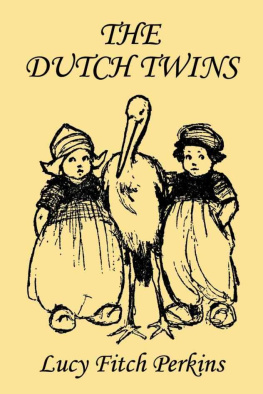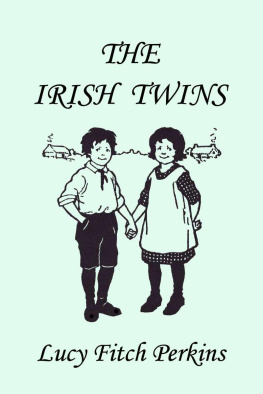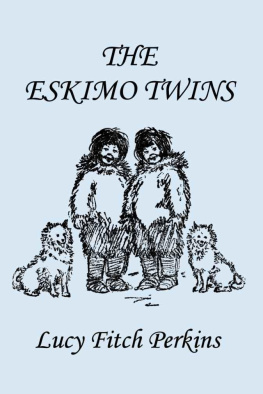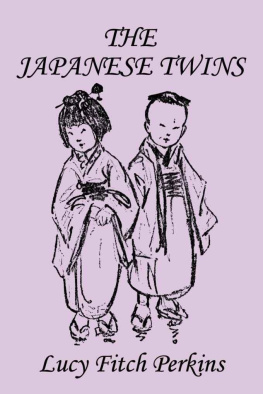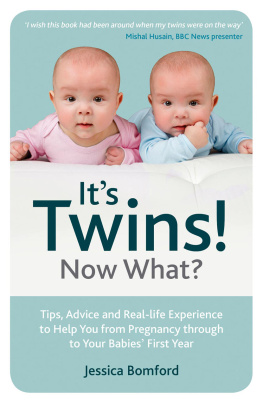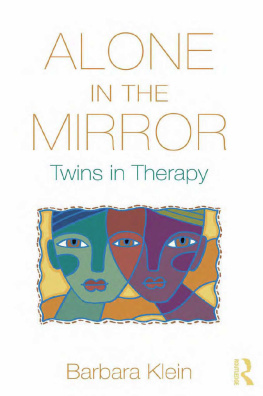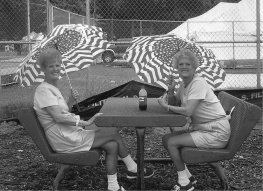The Dutch Twins
by
Lucy Fitch Perkins
Yesterday's Classics
Chapel Hill, North Carolina
Cover and Arrangement 2010 Yesterday's Classics, LLC
All rights reserved. No part of this book may be reproduced or retransmitted in any form or by any means without the written permission of the publisher.
This edition, first published in 2010 by Yesterday's Classics, an imprint of Yesterday's Classics, LLC, is an unabridged republication of the work originally published by Houghton Mifflin Co. in 1911. This title is available in a print edition (ISBN 978-1-59915-057-4).
Yesterday's Classics, LLC
PO Box 3418
Chapel Hill, NC 27515
Yesterday's Classics
Yesterday's Classics republishes classic books for children from the golden age of children's literature, the era from 1880 to 1920. Many of our titles are offered in high-quality paperback editions, with text cast in modern easy-to-read type for today's readers. The illustrations from the original volumes are included except in those few cases where the quality of the original images is too low to make their reproduction feasible. Unless specified otherwise, color illustrations in the original volumes are rendered in black and white in our print editions.
Contents
Kit and Kat
T HIS is a picture of Kit and Kat. They are Twins, and they live in Holland. Kit is the boy, and Kat is the girl.
Of course their real names are not Kit and Kat at all. Their real names are Christopher and Katrina. But you can see for yourself that such long names as that would never in the world fit such a short pair of Twins. So the Twins' Mother, Vrouw Vedder, said,
"They cannot be called Christopher and Katrina until they are four and a half feet high."
Now it takes a long time to grow four and a half feet of Boy and Girl. You know, chickens and puppies and colts and kittens always grow up much faster than twins. Kit and Kat ate a great many breakfasts and dinners and suppers, and played a great many plays, and had a great many happy days while they were growing up to their names. I will tell you about some of them.
The Day They Went Fishing
O NE summer morning, very early, Vrouw Vedder opened the door of her little Dutch kitchen and stepped out.
She looked across the road which ran by the house, across the canal on the other side, across the level green fields that lay beyond, clear to the blue rim of the world, where the sky touches the earth. The sky was very blue; and the great, round, shining face of the sun was just peering over the tops of the trees, as she looked out.
Vrouw Vedder listened. The roosters in the barnyard were crowing, the ducks in the canal were quacking, and all the little birds in the fields were singing for joy. Vrouw Vedder hummed a slow little tune of her own, as she went back into her kitchen.
Kit and Kat were still asleep in their little cupboard bed. She gave them each a kiss. The Twins opened their eyes and sat up.
"O Kit and Kat," said Vrouw Vedder, "the sun is up, the birds are all awake and singing, and Grandfather is going fishing to-day. If you will hurry, you may go with him! He is coming at six o'clock; so pop out of bed and get dressed. I will put some lunch for you in the yellow basket, and you may dig worms for bait in the garden. Only be sure not to step on the young cabbages that Father planted."
Kit and Kat bounced out of bed in a minute. Their mother helped them put on their clothes and new wooden shoes. Then she gave them each a bowl of bread and milk for their breakfast. They ate it sitting on the kitchen doorstep.
This is a picture of Kit and Kat digging worms. You see they did just as their mother said, and did not step on the young cabbages. They sat on them, instead. But that was an accident.
Kit dug the worms, and Kat put them into a basket, with some earth in it to make them feel at home.
When Grandfather came, he brought a large fishing-rod for himself and two little ones for the Twins. There was a little hook on the end of each line.
Vrouw Vedder kissed Kit and Kat goodbye.
"Mind Grandfather, and don't fall into the water," she said.
Grandfather and the Twins started off together down the long road beside the canal.
The house where the Twins lived was right beside the canal. Their father was a gardener, and his beautiful rows of cabbages and beets and onions stretched in long lines across the level fields by the roadside.
Grandfather lived in a large town, a little way beyond the farm where the Twins lived. He did not often have a holiday, because he carried milk to the doors of the people in the town, every morning early. Sometime I will tell you how he did it; but I must not tell you now, because if I do, I can't tell you about their going fishing.
This morning, Grandfather carried his rod and the lunch-basket. Kit and Kat carried the basket of worms between them, and their rods over their shoulders, and they were all three very happy.
They walked along ever so far, beside the canal. Then they turned to the left and walked along a path that ran from the canal across the green fields to what looked like a hill.
But it wasn't a hill at all, really, because there aren't any hills in Holland. It was a long, long wall of earth, very highoh, as high as a house, or even higher! And it had sloping sides.
There is such a wall of earth all around the country of Holland, where the Twins live. There has to be a wall, because the sea is higher than the land. If there were no walls to shut out the sea, the whole country would be covered with water; and if that were so, then there wouldn't be any Holland, or any Holland Twins, or any story. So you see it was very lucky for the Twins that the wall was there. They called it a dyke.
Grandfather and Kit and Kat climbed the dyke. When they reached the top, they sat down a few minutes to rest and look at the great blue sea. Grandfather sat in the middle, with Kit on one side, and Kat on the other; and the basket of worms and the basket of lunch were there, too.
They saw a great ship sail slowly by, making a cloud of smoke.
"Where do the ships go, Grandfather?" asked Kit.
"To America, and England, and China, and all over the world," said Grandfather.
"Why?" asked Kat. Kat almost always said "Why?" and when she didn't, Kit did.
"To take flax and linen from the mills of Holland to make dresses for little girls in other countries," said Grandfather.
"Is that all?" asked Kit.
"They take cheese and herring, bulbs and butter, and lots of other things besides, and bring back to us wheat and meat and all sorts of good things from the lands across the sea."

